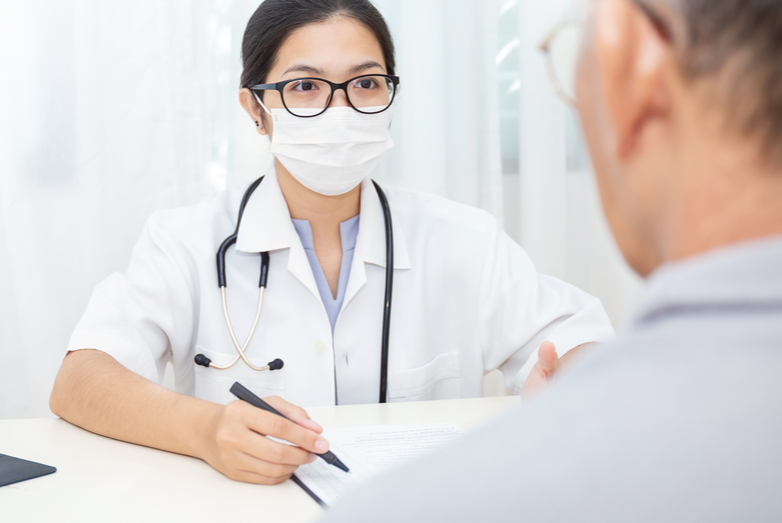Short Answer:
Yes! It is safe to visit the doctor still. Even though you will be potentially walking in the footsteps of previous COVID-19 patients, medical facilities hold high sanitary standards and are taking a wide range of precautions to keep everyone as safe as possible. Most medical facilities are conducting medical screenings at the front doors to ensure patients with a fever or exhibiting other symptoms do not enter the building. Therefore, it is completely safe to visit your doctor still!
As we’re battling COVID-19 across the world, most non-essential businesses have been shut down and those that are still open are forced to adhere to strict guidelines. Hospitals are extremely busy working with Coronavirus patients and running tests on those that fear they have the virus. With that being said, people with preexisting appointments aren’t sure whether they should visit their doctor during this time or not.
For Those with Non-Emergency Medical Needs:
For anyone with a regular checkup or appointment that isn’t urgent, consider canceling your appointment if possible. If you are unsure of whether or not you should, call your doctor and voice your concerns. Most likely, they will be calling to postpone your appointment anyway if it is deemed unnecessary. Officials have recommended that hospitals prioritize people coming into the hospital for urgent and emergency visits at the moment. Depending on your region, however, guidelines may be slightly different.
Those with an Upcoming Surgery:
Many surgeries are being canceled to keep fewer people in the hospital. Elective surgeries as well as some surgeries scheduled for slow cancers, tonsillectomies, and even orthopedic procedures are being postponed allowing doctors to spend their time helping patients in more critical areas. Post-surgery patients are more likely to get infections and illnesses, so by limiting surgical patients, the spread of the virus is also more limited.
- Consider Virtual Appointments
Many people are turning to technology to help them work from home, virtually visit with friends, and even order their groceries. Hospitals are also exploring their technological options to better serve their patients during COVID-19. Many doctors are offering virtual visits for those without urgent needs, allowing patients to still get the proper advice from their doctors without exposing themselves to the virus.
- 911 is Still Operational
Sometimes, putting off an appointment with your doctor just can’t be done. If you have a serious condition or something happens that requires a visit to the emergency room, do not wait. Call 911 and be prepared to be tested for COVID-19. You will most likely be given gloves and a mask to wear while you wait in the emergency room to prevent the spread of the virus.
What to Do When you Think You May Have COVID-19
For the most part, people that have the coronavirus only get it mildly and can recover at home. Keep your distance from everyone else in your home and clean your hands often. Stay hydrated, cover your coughs/sneezes, and attempt to disinfect the commonly used areas in your home as much as you can.
Once you haven’t had a fever in three days, symptoms have improved, and it’s been two weeks since your symptoms first appeared, you can stop home isolation. However, if you are at all worried that you might still have the virus, continue quarantining yourself from others.
When to Seek Help:
If you start to have trouble breathing, develop bluish lips/face, or have a constant pain in your chest, you need to call 911. If at all possible, put a mask on to help prevent the spread to emergency personnel.
Hospitals are screening every patient that comes into the hospital. All hospital staff are wearing protective gear to help prevent spreading the virus in case they were unknowingly exposed. As much as possible, staff are keeping sick patients away from healthy patients. Some hospitals even have people operating the elevators so there are fewer objects for patients to touch.

